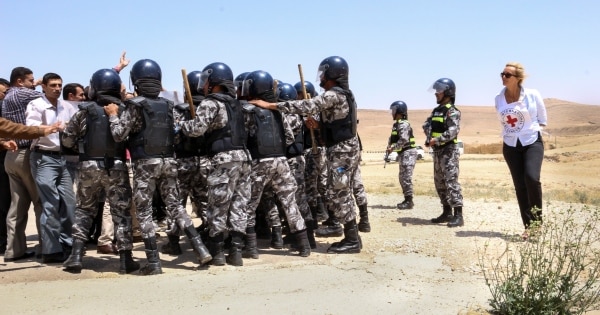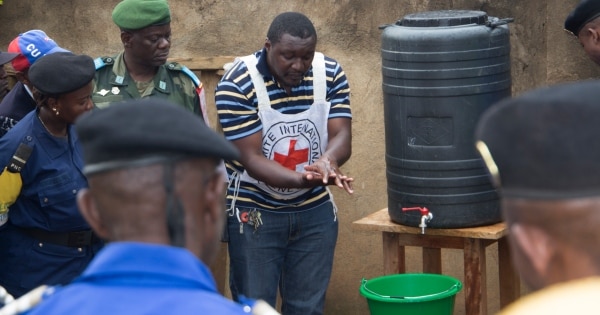< BACK TO JOBS
We regularly have career opportunities for mid- to senior-level military or police officers with strong operational experience who want to work in the humanitarian field.
Areas: police; military; armed forces; non-state armed groups; NSAG; combatants; law of war, international humanitarian law; IHL; law of armed conflict; LOAC; human rights law; IHRL; war crimes; law enforcement; use of force.
WHAT WE DO
ICRC staff working with arms carriers:
- Provide analysis and develop strategies with regard to conflict dynamics (international humanitarian law/IHL) and/or excessive use of force (international human rights law/IHRL), the consequences on the humanitarian situation and the ICRC’s capacity to respond;
- Develop a programme of activities for weapon bearers (military or police forces and non-state armed groups) aimed at addressing the root cause of violations of these bodies of law. The goal is to support the forces’ efforts to integrate the laws into their structure and operations (conduct of hostilities/law enforcement duties);
- Map and develop a network of contacts among weapon bearers, in order to a) enhance their understanding and acceptance of the ICRC’s role and working methods and thereby strengthen staff safety and access to people in need; b) leverage on this network to support the delegation’s dialogue with these players on protection issues; c) boost the ICRC’s understanding of the weapon bearers and its networking with key individuals at different levels.
Our overall aim is to help weapon bearers integrate the provisions of IHL/IHRL into their doctrine, education, training, equipment and sanctions. Our added value lies in a practitioner-to-practitioner approach, translating legal matters into operational reality and bringing about a positive change in their behaviour.
WHAT WE LOOK FOR
- Former mid- to senior-level military or police officers with at least 15 years’ professional experience; comprehensive understanding of IHL/IHRL
- Diverse and strong operational experience in their area of expertise (military/conduct of hostilities or police/use of force). At least one year deployed on operation in conflict areas
- Ideal age: 40 to 55 years
- Availability for a field assignment for a minimum period of two years (renewable)
- Fluent command of English and a second language such as French (very strong asset), Spanish, Arabic or Russian
- Motivation for humanitarian work
- Capacity to work in a cross-cutting way
WHAT WE OFFER
By joining our organization, you will have an opportunity to practise your profession in stimulating, complex and sometimes challenging environments, where your work can really make a difference.
You will work with colleagues from various fields of expertise in a cross-cutting manner to help victims of conflict and other situations of violence. You will be dealing with humanitarian situations that require experience, resourcefulness and innovation in order to achieve the best possible impact, often with limited resources.
You will work for the oldest major international humanitarian organization in the world, adding to your sense of achievement in alleviating the suffering of people and communities and giving you the chance to promote humanitarian values in these turbulent times.
You will benefit from a competitive employment package, including different possibilities for career and personal development. You will take part in an onboarding course and follow continuous training, in order to build your career within the ICRC and beyond.


